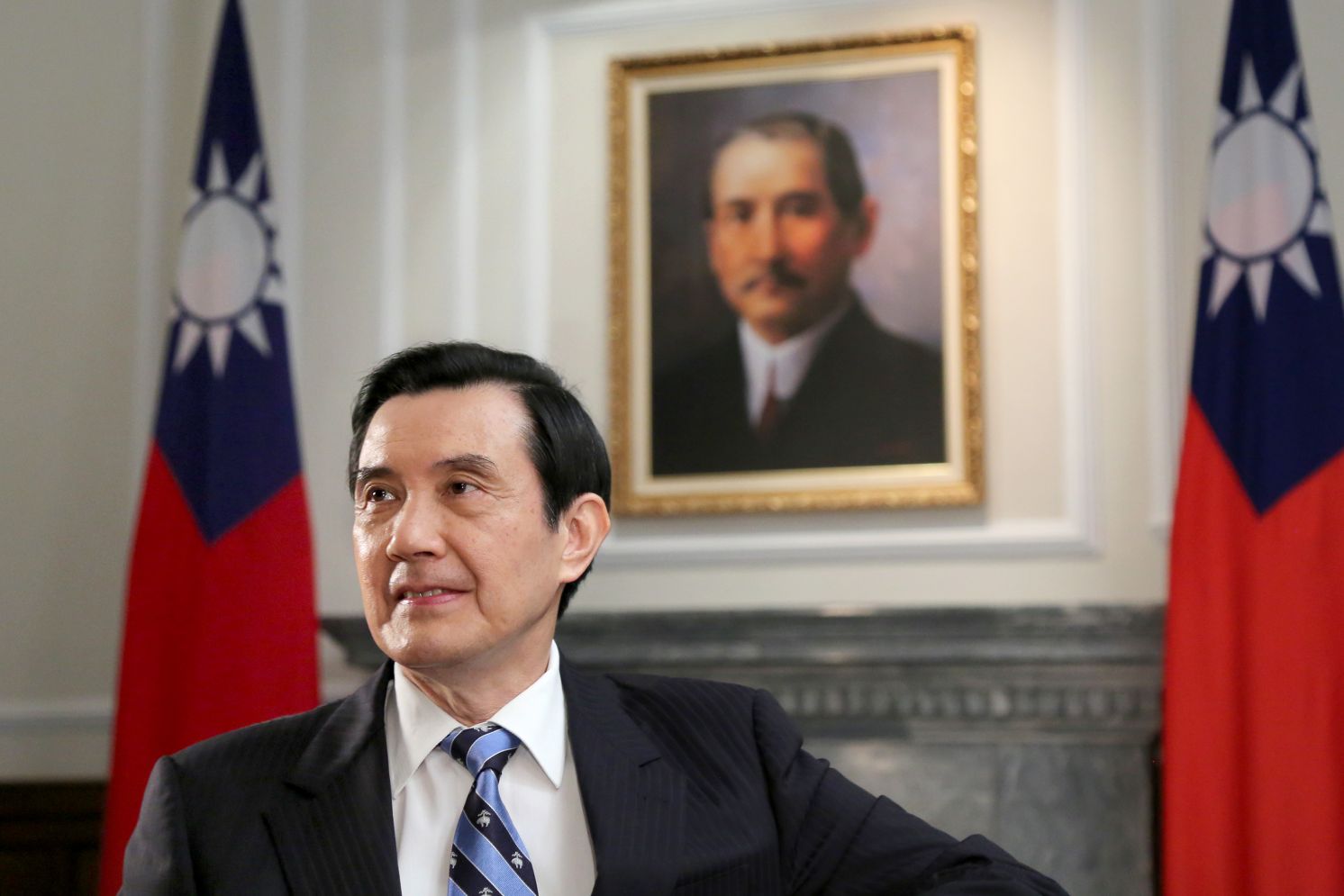
Taiwan is now an "illiberal democracy"
By Ma Ying-jeou
United Daily News, December 9, 2021
The United States will hold the first of its two global "Summits for Democracy" on December 9 and 10, inviting government, civil society, and private sector leaders from 110 countries and regions to discuss such topics as "fighting against authoritarianism," "combating corruption," and "promoting respect for Human Rights." My country was officially invited and will delegate Tang Feng (Minister of State) and Hsiao Bi-khim (representative to the United States) to attend the meeting.
I am glad to see such an arrangement by the United States, but I also have many concerns, because in recent years the DPP government has abandoned "democracy" in favor of "illiberal democracy."
The term "illiberal democracy" was coined by Fareed Zakaria, a famous Indian-American scholar. He pointed out that since the beginning of the 20th century, hundreds of countries have regularly elected national leaders and are regarded as "democratic countries." However, after the presidents of some of these countries took office, they began to adopt policies or measures that departed from freedom and democracy. Anti-democratic actions that they've taken include amending the constitution to extend their terms, illegally restricting people's freedoms, and unlawfully cracking down on opposition parties or political opponents. He called these countries "illiberal democracies" or "elected autocracies."
After President Tsai Ing-wen took office in 2016, many of her actions have violated the principle of "rule of law." For example, she has set up a clearly unconstitutional Ill-Gotten Party Assets Settlement Committee, and her Transitional Justice Commission is being used as a club to attack the biggest opposition party (the Kuomintang). She has granted too many powers to the executive branch, suppressed the rights of the people, and harmed Taiwan's democracy profoundly. Such actions include the following:
1. On January 5, 2018, Professor Kuan Chung-ming was elected as the President of National Taiwan University, but the Ministry of Education ignored the legitimacy of the election and violated the "University Act" by denying his eligibility. It took more than a year for Professor Kuan to finally be appointed.
2. On September 12, 2018, media reports revealed that Chang Tien-chin, the deputy chairman of the Transitional Justice Commission regarded the Commission as a sort of "Dong Chang (a secret police agency in ancient China)" and used "transitional justice" as a tool to attack Hou Yu-ih, the KMT candidate for mayor of New Taipei City.
3. On June 17, 2019, the DDP caucus in the Legislative Yuan amended the "Referendum Act" at President Tsai’s request to do away with the previous practice of holding referendums on the same days as general elections. The amended act mandated that referendums would instead be held on the fourth Saturday of August every two years. It is perfectly obvious that this change will reduce voter participation in referendums.
4. On December 19, 2019, Su Hung-dah, a Professor in the Department of Political Science at National Taiwan University, criticized the government's cultural policy. The Taipei City Police Department then called him in for questioning regarding a possible violation of the "Social Order Maintenance Act." He was interrogated for several hours at a police station.
5. On August 28, 2020, President Tsai, acting without discussion with the Executive Yuan or the Legislative Yuan, unilaterally announced a decision to allow the import of highly controversial American ractopamine pork (including offal).
6. On December 11, 2020, President Tsai shut down CTi News, which was the first time that a Taiwanese TV news station had ever been shut down by the government in history.
7. On March 28, 2021, President Tsai ignored the results of the 2018 referendum in which the people of Taiwan voted to retain nuclear power. She insisted on taking the fuel rods of the Fourth Nuclear Power Plant and sending them abroad.
8. On November 16, 2021, President Tsai personally designated the DDP mayoral candidates, thereby essentially abolishing a nomination system in the DDP that had been in existence for decades.
9. In November 2021, the media disclosed that a female DPP legislator was violently abused by her boyfriend. The report resulted in the exposure of the DPP's "cyber army" system. These cyber armies, which are suspected of receiving support from a questionable source, are like "online brownshirts" who have long bullied anyone that disagrees with the government on the Internet. In fact, they have even hounded an outstanding Taiwanese diplomat stationed in Japan to death.
These actions are inconsistent with democratic constitutionalism. Indeed, they are the very definition of "illiberal democracy" or "elected autocracy." Although President Tsai often boasts of the preciousness of Taiwan's democratic values, she has personally destroyed them.
In their 2018 best-selling book "How Democracies Die," Harvard Professors Steven Levitsky and Daniel Ziblatt point out that the death of most democratic systems happens through a gradual degeneration and a slow slide into authoritarianism, not through a one-time coup.
I hope that President Tsai and the DDP can keep the people of the country in their minds, rein themselves in at the brink of the precipice, and return to true freedom and democracy. Only by doing so can Taiwan be a worthy participant in this "Summit for Democracy."
The author is former president of the Republic of China (Taiwan), 2008-2016.